Singer-songwriter Elliott Smith died from seemingly self-inflicted stab wounds at the age of 34 in 2003, but some believe that there's more to the story.
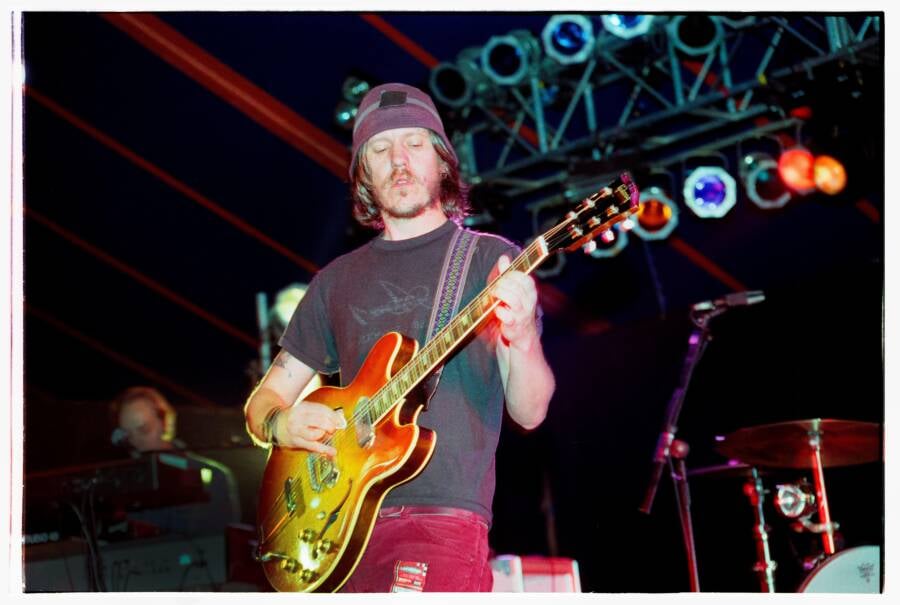
Rob Watkins/Alamy Stock PhotoElliott Smith was known for writing songs about depression and suicide.
Singer-songwriter Elliott Smith wasn’t known for writing uplifting songs. Starting with the release of his debut album Roman Candle in 1994, Smith established a style that blended moody acoustic guitars, whispery vocal melodies, and philosophical lyrics. His work resonated with a generation of disillusioned young adults — and made him a star.
Smith’s songs connected with people, in part, because he was experiencing those same feelings. His music was honest, raw, and deeply personal. As an artist, however, that openness and vulnerability can be a major detriment. It added pressure to what was already a rather turbulent and stressful lifestyle.
As a result, Smith, who had long struggled with depression as is, fell into a dangerous cycle of substance abuse. It started with heavy drinking, but by the early 2000s, it had devolved into heavy heroin use. As his live performances became more erratic, fans and friends grew increasingly concerned for his well-being. Then, their worst fears came true.
On Oct. 21, 2003, Smith was found dead at his home in Echo Park, Los Angeles, from two stab wounds to the chest in an apparent suicide. Given the nature of his injuries, however, many have speculated since that that Smith was actually murdered by his girlfriend, Jennifer Chiba, who was home when he died and was the first to find him.
That said, it’s sadly easy to trace Smith’s downward spiral of substance abuse and depression. At the end of his life, years of trauma, drugs, and the pressures of fame all seemingly caught up to him.
This is the sad story of Elliott Smith’s death at the age of just 34.
How Steven Smith Became Elliott Smith
Born Steven Paul Smith on Aug. 6, 1969, in Omaha, Nebraska, Elliott Smith had a difficult childhood.
His parents — Bunny Kay Berryman, an elementary school music teacher, and Gary Smith, a psychiatrist — divorced when he was just six months old. Berryman then moved with their son down to Texas, where she met a man named Charlie Welch. Unfortunately, Smith’s relationship with his new stepfather was far from pleasant — and allegedly abusive.
“Elliott said he was abused by his father,” Smith’s friend Steve Hanft told SPIN in 2013. “He said it was real bad mental trauma. He said he never got over it.”
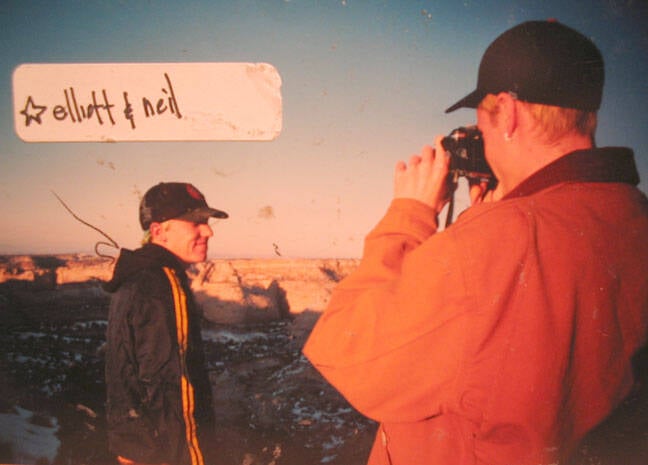
Heatmiser/MySpaceElliott Smith and Neil Gust in promo pictures for Heatmiser.
Welch denied any allegations of sexual abuse, but did admit in a letter that he had been too hard on his stepson and acknowledged some of his own shortcomings. That letter sadly never reached Smith, though, as it arrived just a few days after Elliott Smith’s death. Whatever the truth, things were seemingly bad enough for Smith at home that he decided to leave his mother’s house in Dallas at 14 and go live with his father in Portland.
“I didn’t sleep at all for about the first six months I lived there,” he stated in an interview with Under the Radar. “At that time, the situation at my mother’s home was fresh in my mind. I was very worried about my mother… I cannot enter into details, because that would hurt my mother, but I had to go. I couldn’t stay in the same house as my stepfather.”
Smith began attending Lincoln High School, where he fatefully met some musically inclined friends. They formed a band called Stranger Than Fiction.
“We didn’t really play out,” Smith recalled in an interview archived by the Sweet Adeline fan site. “We just made tapes. We’d be recording an ‘album’ so to speak, except it’d be an album we’d record to cassette four track and then make some tapes… It was a good way to spend time.”
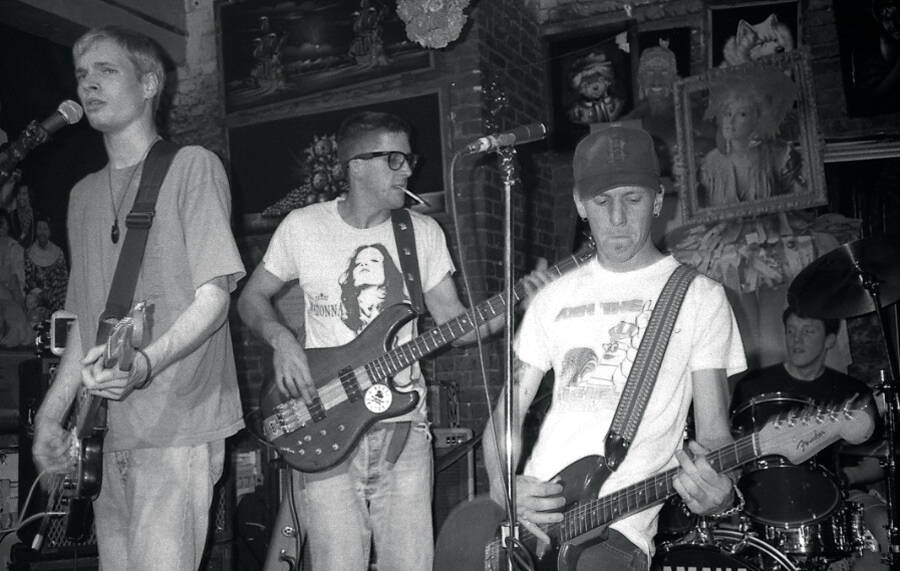
Heatmiser/MySpaceHeatmiser performing live.
“Elliott’s songs were ridiculously complicated then,” his friend and bandmate Tony Lash recounted to Pitchfork. “…We recorded our one really ambitious album when I was a senior and he was a junior; we definitely aimed high, even if the results weren’t necessarily stellar.”
Even if Stranger Than Fiction never took off, it did eventually lead Smith to form another band post-college called Heatmiser, with Neil Gust, Lash, and Brandt Peterson. There were some lineup changes throughout their tenure, and although Heatmiser attracted a fairly loyal following and clear talent, it served better as a vehicle for Smith’s songwriting.
During that time, he was also working on solo songs at home, which eventually became his debut album Roman Candle.
Solo Career, Fame, And Substance Abuse
The music Smith recorded on his own was drastically different to the songs he’d been performing with Heatmiser. Roman Candle was mixed off of a four-track cassette in a basement, and the whole thing had been recorded with a low-quality microphone. It shouldn’t have worked, but something about the production and Smith’s songwriting paired perfectly.
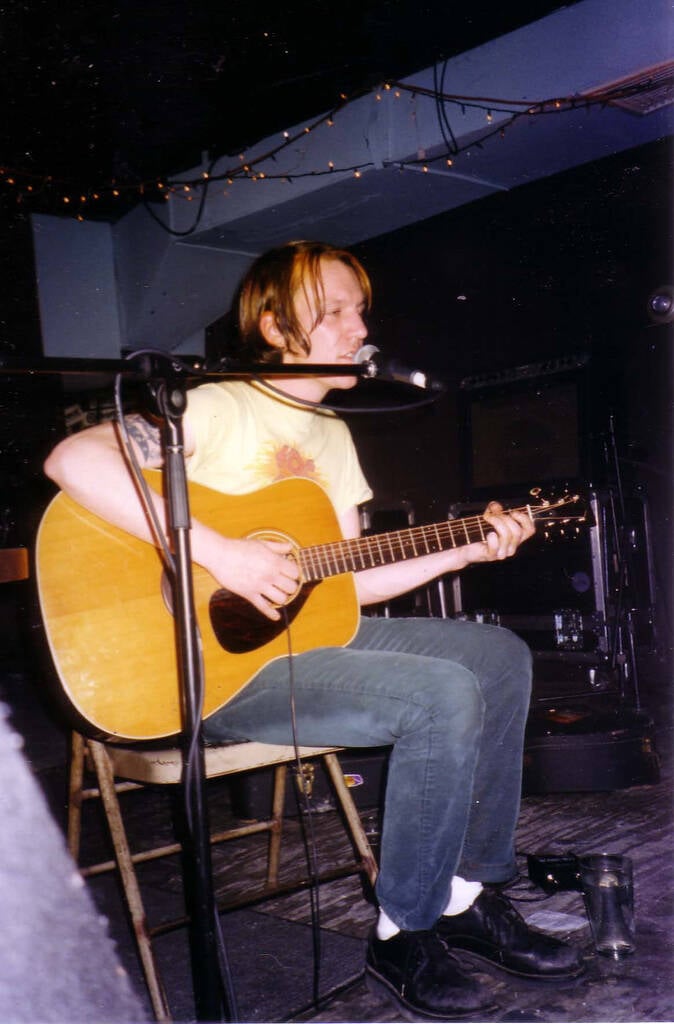
Constintina Trainwreck/Wikimedia CommonsElliott Smith performing in New York in 1997.
“It was so different from what Heatmiser was doing,” Lash said. “I didn’t have a sense right then that it was going to become this big thing.”
Smith agreed.
“My first solo record, Roman Candle, was just the most recent eight songs that I’d recorded on borrowed four-tracks and a borrowed guitar,” Smith later told Under the Radar. “When they wanted to put out my record I was totally shocked. I thought my head would be chopped off immediately when it came out because at the time it was so opposite to the grunge thing that was popular.”
Instead, the opposite happened. Heatmiser eventually called it quits, and Smith continued to work on his own music. He had already put out a second self-titled solo record, and begun work on his third album, Either/Or. But the pressure was starting to build.
“I remember that record most fondly even though I nearly had a nervous breakdown,” Smith said. “I recorded so many songs for it, and one or two of them sucked. Then three or four of them sucked. Then they all sucked and everything I did was terrible. I was never good enough. That was my train of thought.”
Either/Or was Smith’s most well received record to date — and his song “Miss Misery” also featured in the film Good Will Hunting, which led to Smith performing at the Oscars — but his confidence was at an all time low. Struggling with both ADHD and depression, he started drinking more and mixing his alcohol with antidepressants. Eventually, his substance abuse led his friends to stage an intervention, after which Smith checked into a psychiatric hospital in Arizona.
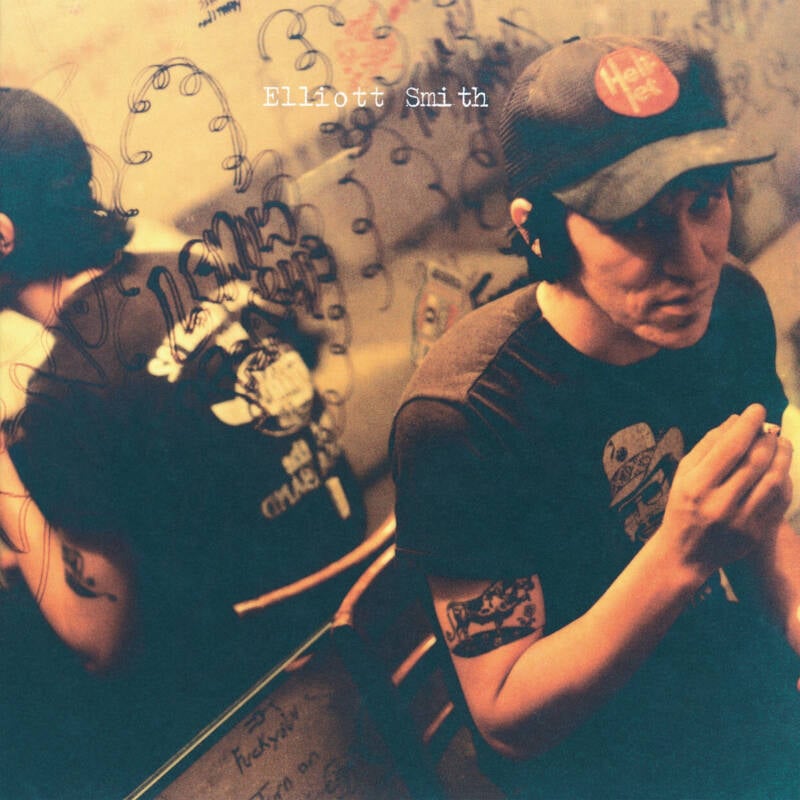
Kill Rock Stars The cover of Smith’s Either/Or.
“That episode is long passed. I guess it was two, two-and-a-half years ago now, maybe,” he told Uncut in 2000. “It was a psychiatric hospital. Let’s just say I didn’t want to go there.”
Smith had also been writing his fourth album, XO, now for DreamWorks Records after the studio bought out his contract from Virgin, but his newfound fame had its own issues. Smith stated that he didn’t like talking to famous people, but the fact was that he was also famous, even if he tried to resist that fame.
As a result, Smith grew bitter. He used drugs and alcohol more. And his mental health suffered.
“Elliott wasn’t a typical alcoholic or drug addict in the sense that they try to keep it secret from people. He was very honest about what was going on,” said his friend and former publicist Dorien Garry. “If there’s one thing Elliott was not it’s a liar. It was hard. I don’t know which is worse: being deceived or having it just be all out in the open like that.”
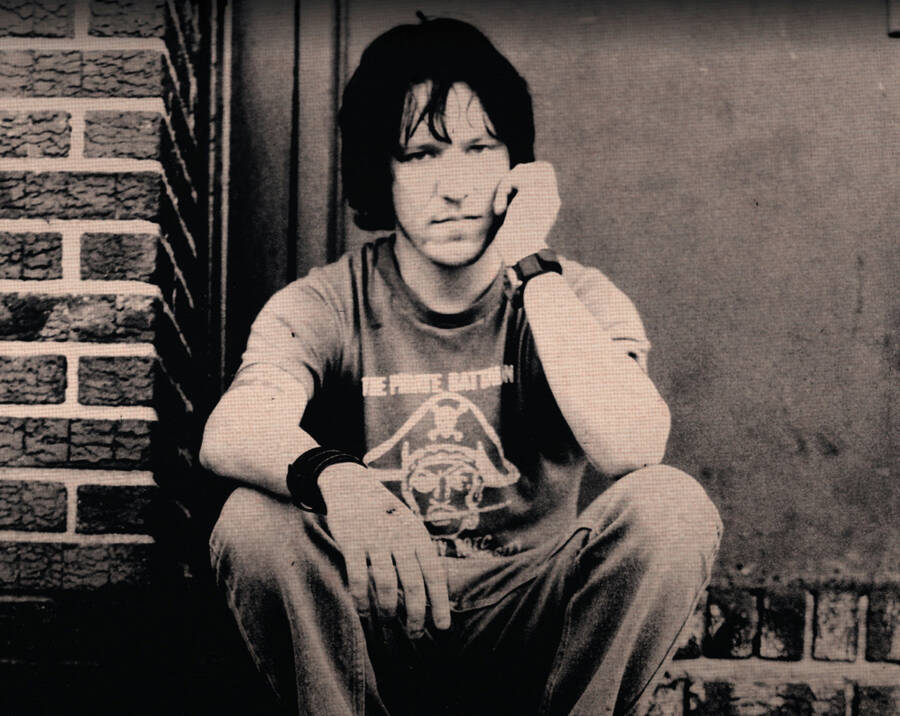
Elliott Smith/BandcampElliott Smith reportedly wanted to induce cardiac arrest through drugs and alcohol.
Even when he attempted to put it all behind him — by writing a “happy-sounding” album with 2000’s Figure 8 — his mental health continued to decline.
“He said that he’d wanted to kill himself many times,” Jennifer Chiba, Smith’s girlfriend at the time of his death, told SPIN, “but didn’t want his mother to get a phone call one day saying that he’d done it, so he was going to commit ‘socially acceptable suicide,’ the slow one — alcohol and drugs — because he knew that would eventually destroy him.”
But Smith also tried to seek help. In 2000, he decided to check into the Neurotransmitter Restoration Center in Beverly Hills. It turned out the clinic was being run by a fake doctor named William Hitt, who had committed various acts of medical malpractice in Texas, but Smith felt that the not-actually-a-clinic was helpful for him. He even he got clean.
Getting clean, however, had the unfortunate side effect of letting him finally remember the childhood trauma he always tried to suppress.
Elliott Smith’s Downward Spiral
Elliott Smith moved in with Chiba in fall 2002 to recuperate, and even though he was no longer using heroin or crack, he began abusing prescription medications to try and deal with the mental anguish he was feeling. It was the downward spiral after his downward spiral. He was also growing paranoid, believing that DreamWorks was sending people to follow him around, bugging his conversations, and otherwise stalking him.
“He believed these things were there and knew they weren’t necessarily real, but he couldn’t control his thoughts,” his friend Robin Peringer told SPIN.
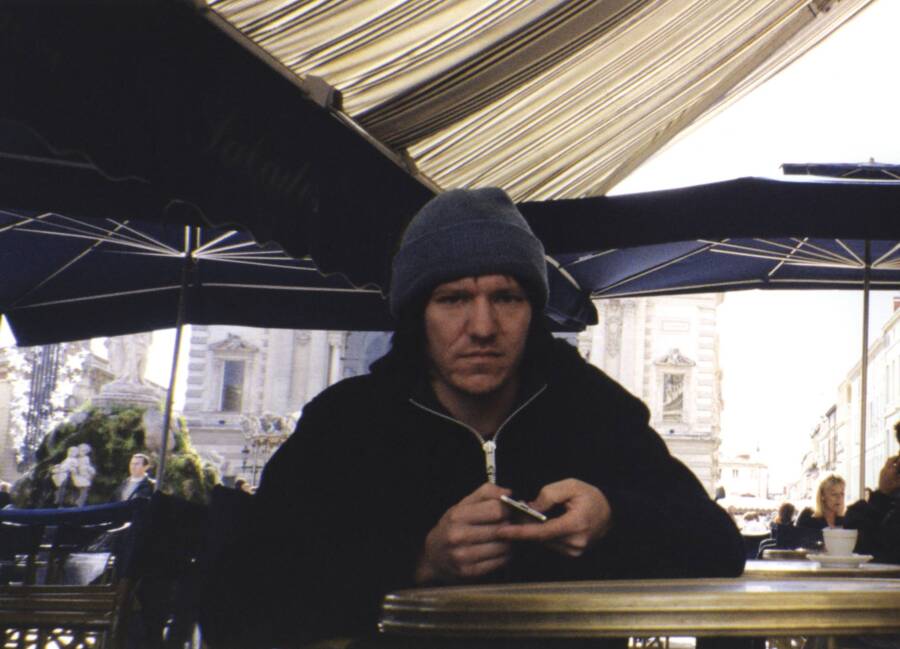
Elliott Smith/FacebookSmith died just three days before he was going to see a new therapist.
The pharmaceutical medications weren’t helping him in the way he’d wanted, and around the time of his 34th birthday, Smith finally decided to get completely clean and cut out alcohol, red meat, caffeine, and sugar.
Everything else was much harder. For years, Smith had been taking a cocktail of antipsychotics, antidepressants, anti-anxiety agents, anti-seizure medication, amphetamine-based attention-deficit-disorder medication, antidepressant-based ADHD medication, and narcotic painkillers. He narrowed that down to five drugs, but he refused to detox in a hospital.
Meanwhile, Smith was also self-harming because of the shame he felt looking down at cigarette burns on his arm — anything, really, that reminded him of the years of heroin and crack abuse. But he was an all-or-nothing type of guy, and by September 2003, Smith had left many of his vices behind. He was lucid, for the first time in years.
But he was also nervous, and his clear mind brought a lot of trauma back to the surface. He unloaded about his childhood and stepfather to his friends, and then finally called his mother on September 30 to tell her that he believed the fuzzy flashbacks he experienced were repressed memories from being sexually abused by Welch. According to friends, his mother didn’t believe him. His half-sister also said she had no recollection of any abuse.
“None of it’s been proven,” Peringer said. “But they are Elliott’s memories, and they haunted him every day. Elliott truly believed something happened to him at his stepfather’s hands.”
Come October of that year, Smith was actively looking for a talk therapist with a background in child abuse issues. It took a long time, but he eventually found someone he could talk to and booked his first session for October 24. As he waited for that day to approach, he was also working on new music. He had also purportedly gotten engaged to Chiba, made preparations to launch an independent album, and tried to mentally prepare for a potential Thanksgiving dinner with his mother and stepfather.
But then Elliott Smith died by suicide at the age of 34
Elliott Smith’s Death From Self-Inflicted Stab Wounds
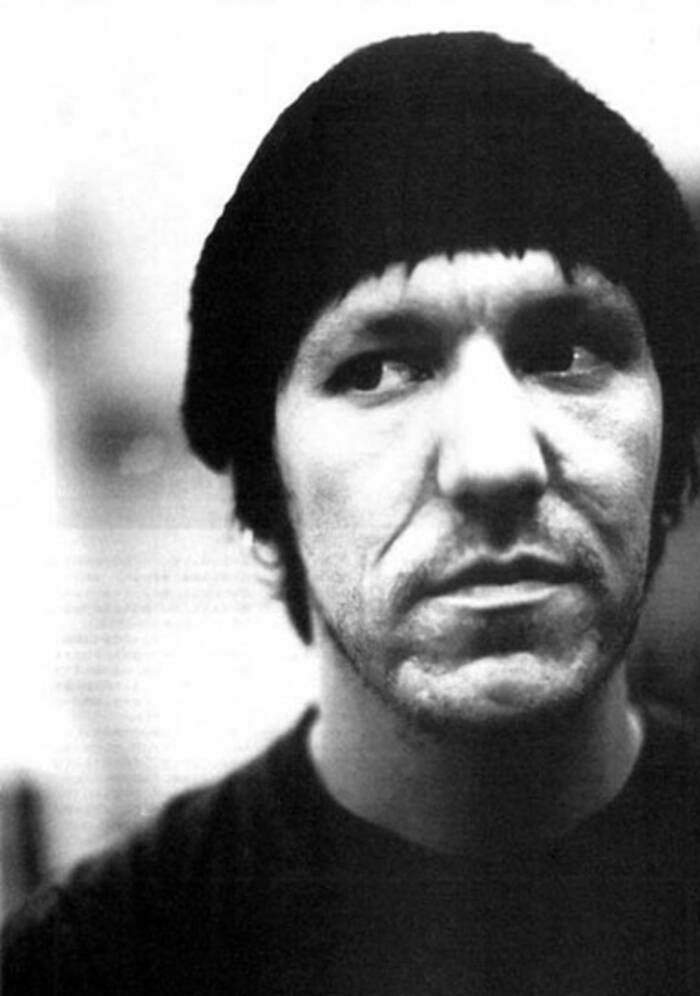
The Picture Art CollectionElliott Smith died of suicide in 2003.
The days and weeks leading up to Elliott Smith’s death were tumultuous. Not only was the singer dealing with inner turmoil, but he was also fighting with his girlfriend, Chiba. One particularly bad fight broke out on Oct. 21, 2003. Smith threatened to kill himself; Chiba locked herself in their bathroom.
Then, she heard screaming.
Returning to Smith’s side, Chiba purportedly found the singer with a knife sticking out of his chest. She pulled it out and called for help, but it was too late — Smith was fatally wounded. Elliott Smith died some 20 minutes after arriving at the hospital, at the age of 34.
He left a note that read: “I’m so sorry, love, Elliott. God forgive me.”
Elliott Smith’s death was ruled a suicide, albeit an unusual one. Very few people kill themselves by stabbing, though it’s been known to happen. And a subsequent coroner’s report added to the bizarre nature of his death.
It reported that Smith was clean of illegal drugs, though he had prescription drugs in his system. And it offered a less-than-definitive conclusion about Elliott Smith’s cause of death.
“While his history of depression is compatible with suicide,” the report stated, “and the location and direction of the stab wounds are consistent with self-infliction, several aspects of the circumstances (as they are known at this time) are atypical of suicide and raise the possibility of homicide.”
The report specifically pointed to the fact that Smith had no hesitation wounds, that he had stabbed himself through his clothing, and that he had small wounds on his hands and right arm which could be “possible defensive wounds.”
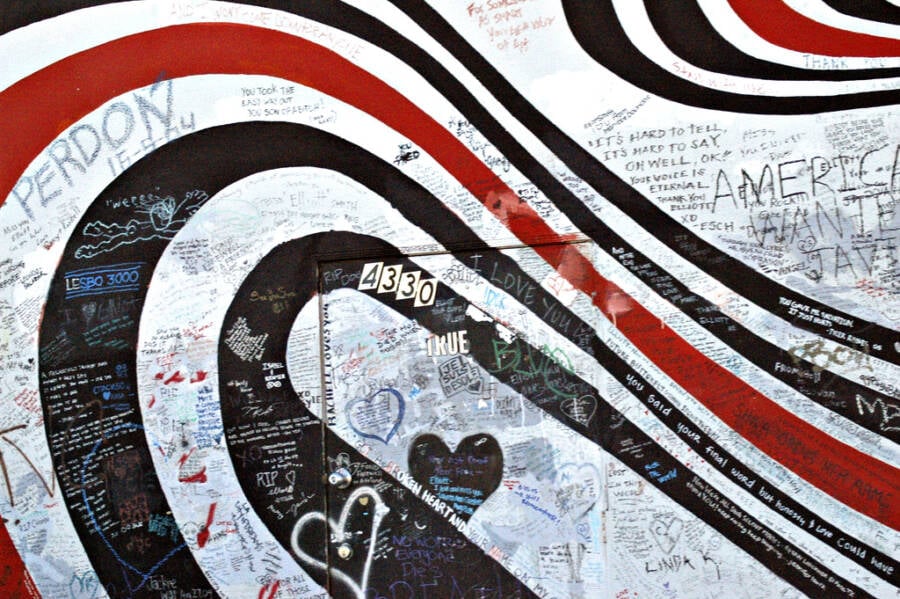
MacLeod/Wikimedia CommonsA memorial to Elliott Smith in the Silver Lake neighborhood of Los Angeles in 2006.
Suspicion, naturally, turned to the one person who had been with Smith when he died — his girlfriend Jennifer Chiba. The report called Chiba’s removal of the knife from Smith’s body after she found him and her refusal to speak with detectives issues “of concern.”
Chiba, however, denied that she had anything to do with Elliott Smith’s death. And indeed it seemed that Smith had been caught in a downward spiral for a long, long time. He’d threatened suicide before. He’d spent years trying to die with drugs and alcohol. He’d gotten clean, but he was still depressed and mentally scarred.
As drummer Scott McPherson put it, Smith was “a sick man without his medicine.” And it was a sickness that sadly overwhelmed him.
After reading about Elliott Smith’s death, read about Prince’s death and the substance abuse issues he hid for years. Or, read about the tragic death of Aaliyah in a plane crash.





